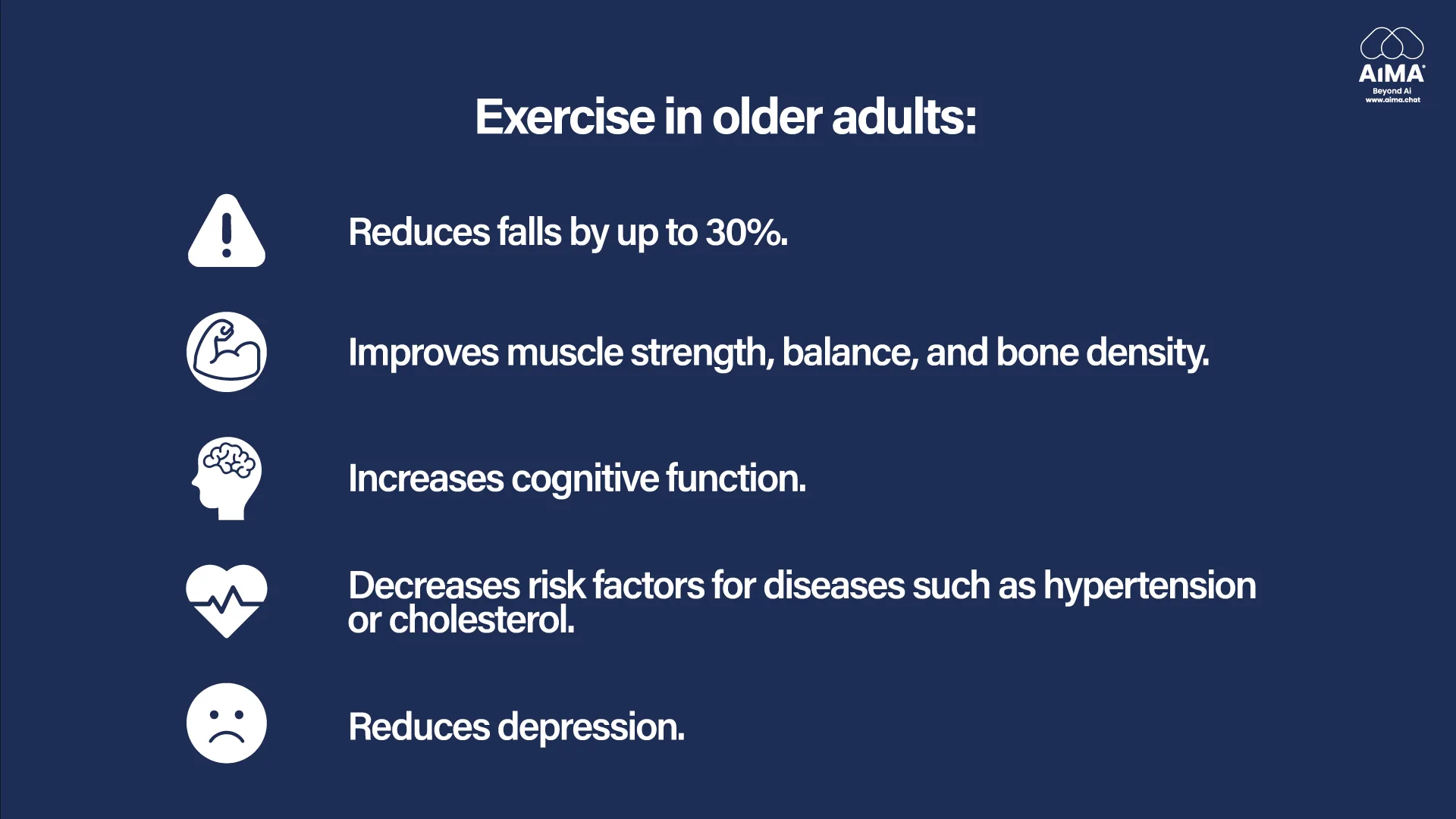
26 Jun Virtual Assistants: How Technology Can Transform the Health of Older Adults
Technology is transforming the care of older adults. Tailored physical exercise is one of the best ways to protect our health, and today there is strong evidence that it can help prevent hospital admissions, according to various studies.
The British Journal of Sports Medicine and the Cochrane Library have recently published findings showing that exercise in older adults can:
Reduce falls by up to 30%
Improve muscle strength, balance, and bone density
Enhance cognitive function
Lower risk factors for diseases such as hypertension and high cholesterol
Reduce symptoms of depression
These studies also highlight that older adults who remain physically active and exercise daily have a 30% to 40% lower risk of mortality compared to their sedentary peers.
Today, there are internationally recognized programs like Vivifrail, offering personalized and scientifically validated physical exercise plans tailored to each individual’s functional level. These programs aim to prevent sedentary behavior and help older adults maintain their independence for as long as possible. The exercises can be performed both in care facilities and at home.
At this point, virtual assistants like AiMA Beyond Ai play a key role in reinforcing these personalized plans by helping older adults stay consistent through conversations and reminders.
AiMA is a virtual companion that offers continuous support, helping users remember their daily exercise routines, providing motivation and emotional follow-up, answering questions about the exercises, and encouraging them to complete their personalized exercise plan every day.
The Spanish Society of Geriatrics and Gerontology has confirmed it: physical exercise is the most effective, safe, and efficient strategy to prevent frailty in older adults. Virtual assistants are essential tools in making this real transformation in health and well-being possible for older individuals.

